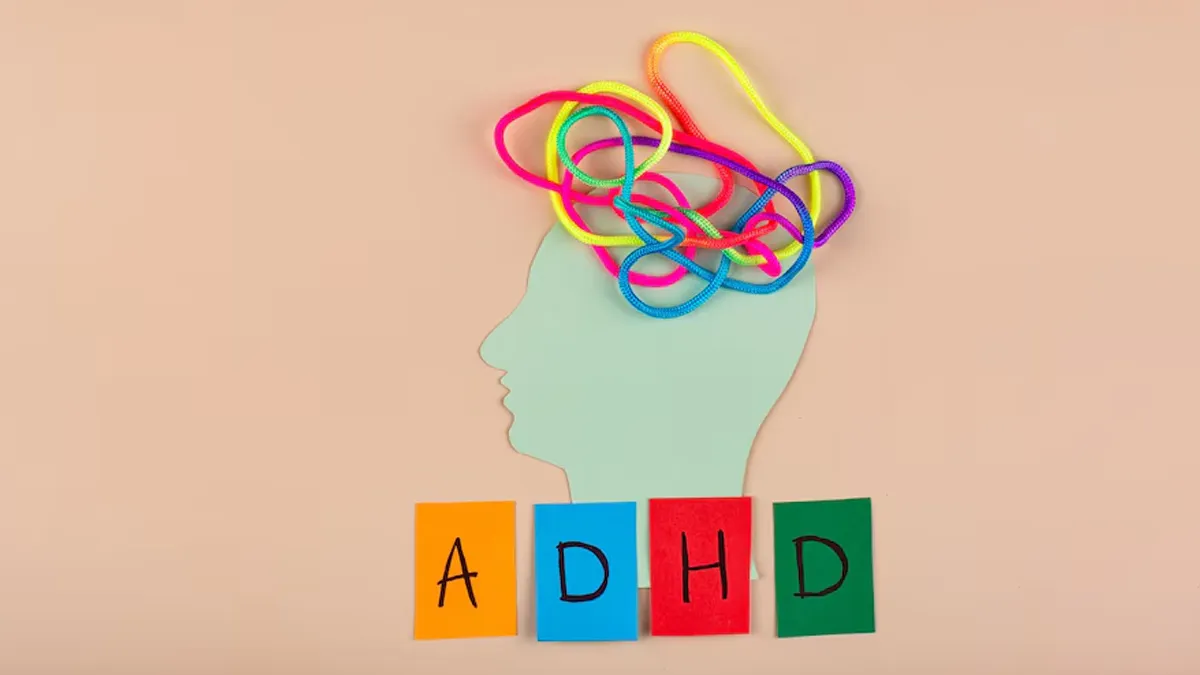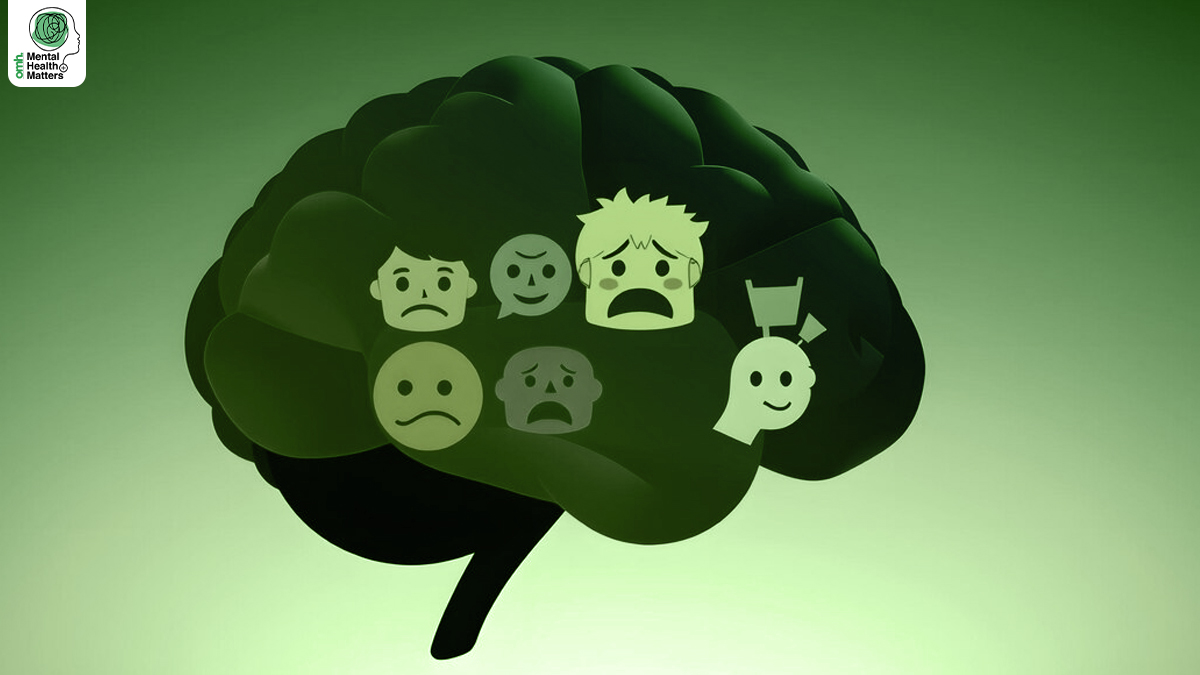
Attention-Deficit Hyperactivity Disorder (ADHD) is a condition that affects millions worldwide, known for its symptoms of inattention, impulsivity, and hyperactivity. However, ADHD often brings more to the table than its classic traits. Many individuals with ADHD experience heightened anxiety, either as a result of the condition itself or as a co-occurring disorder. This interlinked relationship can complicate diagnosis and treatment, leaving many struggling to find balance.
Table of Content:-
CHECK YOUR
MENTAL HEALTH

In an interaction with Onlymyhealth, Dr Shrey Kumar Srivastav, Senior Consultant and General Physician, Sharda Hospital - Noida, shares the connection between ADHD and anxiety, their causes, and ways to manage both conditions together. Here is what he shared with us.
Link Between ADHD And Anxiety
While ADHD and anxiety are distinct mental health conditions, they often overlap. Studies estimate that up to 50% of individuals with ADHD also experience an anxiety disorder. This high rate of comorbidity can make it challenging to distinguish where ADHD symptoms end and anxiety begins. Stating an example Dr Srivastav explains, “A person with ADHD may struggle with disorganisation or missed deadlines, leading to worry about their performance. Over time, this worry can escalate into anxiety.”

Also Read: ADHD And Sleep Issues: Understanding The Link And Ways To Tackle Sleep Problems
Why ADHD Can Induce Anxiety
Dr Srivastav highlights that ADHD can induce anxiety, and it can happen due to one or a combination of the following factors:
1. Chronic Stress from ADHD Symptoms
The day-to-day challenges of living with ADHD involve difficulty focusing, impulsive decisions, or social misunderstandings which in turn can create chronic stress. Over time, this stress may evolve into anxiety.
2. Fear of Failure or Judgement
People with ADHD often encounter negative feedback in academic, professional, or social settings. This repeated criticism can build a fear of failure or judgment, which is a sign of anxiety.
3. Difficulty Regulating Emotions
Emotional dysregulation is a common symptom of ADHD. Struggles with managing frustration, disappointment, or overstimulation can exacerbate feelings of worry and tension.
4. Cognitive Hyperactivity
ADHD doesn’t only involve physical hyperactivity. Cognitive hyperactivity, meaning, racing thoughts, excessive worry, and mental restlessness can mirror anxiety or similar symptoms.

Also Read: ADHD In Women: Understanding Symptoms, Challenges, And Why It Is Often Misdiagnosed
How To Recognise ADHD-Induced Anxiety?
“It’s crucial to differentiate between ADHD-induced anxiety and standalone anxiety disorders. Here are some key indicators,” shares Dr Srivastava:
1. Trigger-Specific Anxiety
If anxiety arises specifically from ADHD challenges (e.g., forgetting assignments, difficulty managing time), it may stem from ADHD rather than a primary anxiety disorder.
2. Pattern of worry
Anxiety linked to ADHD often follows a situational pattern tied to disorganisation or impulsivity rather than generalised or persistent worry without clear causes.
3. Emotional overlap
Co-occurring symptoms like irritability, frustration, or mood swings may point to ADHD as the root issue.
Tips To Manage ADHD And Anxiety
Addressing both ADHD and anxiety involves a multi-pronged approach, including medical interventions, therapy, and lifestyle changes. Here are effective strategies:
1. Seek Professional Support
Diagnosis and Medication: A mental health professional can evaluate symptoms and recommend treatment. Stimulants (commonly prescribed for ADHD) or non-stimulant medications can help manage core ADHD symptoms, potentially reducing anxiety triggers.
Therapy: Cognitive Behavioural Therapy (CBT) is highly effective in treating anxiety and ADHD. It helps individuals develop coping strategies, reframe negative thought patterns, and improve organisation.
2. Adopt Mindfulness Practices
Mindfulness and relaxation techniques, such as meditation or deep breathing exercises, can help calm racing thoughts and alleviate anxiety. Regular mindfulness practice may also improve focus and emotional regulation.
3. Prioritise Organisation
Creating a structured environment can reduce ADHD-related stressors. Tools like planners, apps, or visual reminders can help manage time and tasks effectively, lowering anxiety caused by forgetfulness or disorganisation.
4. Exercise Regularly
Physical activity benefits both ADHD and anxiety by improving mood, increasing focus, and reducing stress. Aerobic exercises like running, cycling, or swimming are particularly effective.
5. Foster Support Networks
Connecting with friends, family, or support groups can provide emotional validation and practical advice. Sharing experiences with others who face similar challenges can be incredibly reassuring.
Bottomline
The interplay between ADHD and anxiety can be complex, but it’s manageable with the right tools and support like practising mindfulness, exercising regularly, and developing or prioritising organisational skills. Recognising the connection is the first step in addressing the challenges posed by these conditions. If you or a loved one struggles with these issues, know that help is available, and recovery is within reach.
Also watch this video
How we keep this article up to date:
We work with experts and keep a close eye on the latest in health and wellness. Whenever there is a new research or helpful information, we update our articles with accurate and useful advice.
Current Version